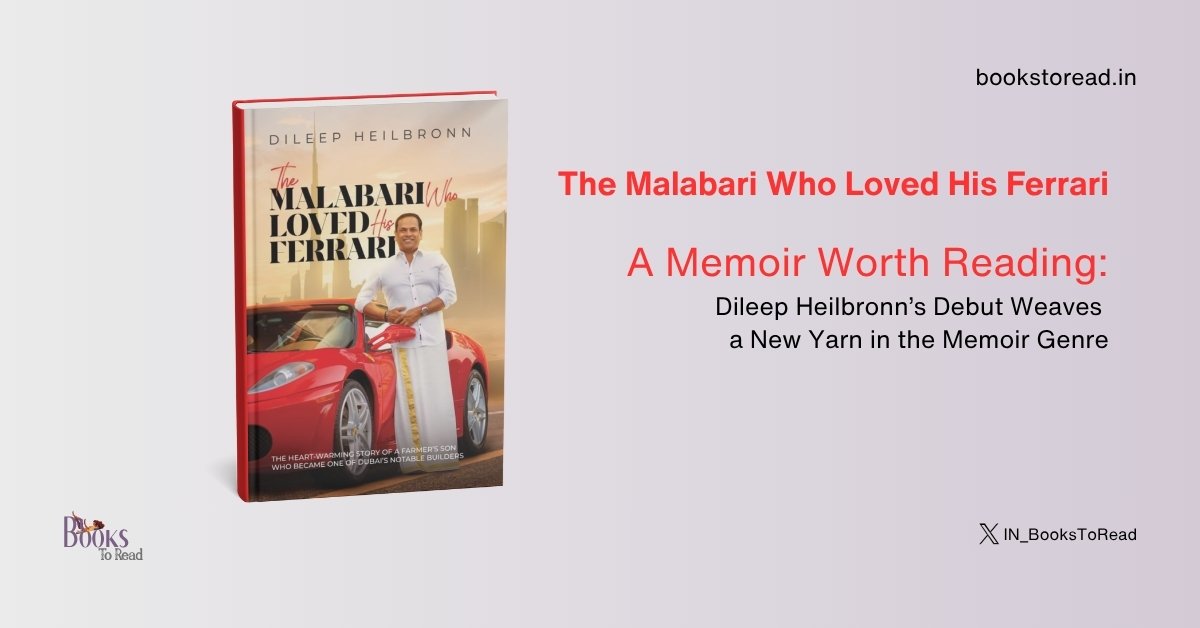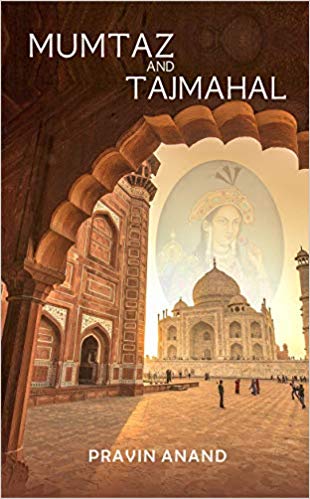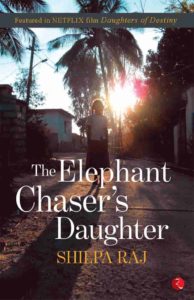Dileep Heilbronn’s The Malabari Who Loved His Ferrari is not just another success story dressed up in glossy memoir packaging. It is a decisive shift from the usual template followed by influential personalities who recount their lives through hyperbole, manicured adversity, and often, a selective memory curated for public consumption. Heilbronn’s memoir stands out for its lack of theatrical flourish and instead embraces a tone of intimate authenticity. His life, recounted without embellishment, resonates with readers because it is lived in full—its shadows are not hidden, and its brightness is not exaggerated.
In an age where memoirs by industrialists, politicians, celebrities, and founders often begin with a rags-to-riches preamble and end in a monologue about legacy and leadership, Dileep’s writing takes a different route. It starts with a very ordinary Indian boyhood in Madras and accommodates ordinary feelings: confusion, gratitude, fear, and forgiveness. His words are not orchestrated to inspire awe. Instead, they carry a quiet, lived-out wisdom. This is apparent in reflections like, “Sometimes, pursuing our dreams requires tough choices,” or “Our life experiences and memories are our greatest teachers.” These are not lines written for dramatic effect—they are small yet deep observations that echo with readers because they feel earned, not inserted.
One of the most distinctive aspects of Dileep’s memoir is his complete refusal to fictionalise or dramatise his path to success. In many ways, this disarms the reader. You do not get a story with sudden epiphanies or a single breakthrough moment that changes everything. You get years of persistent work, careful decisions, loyal friendships, unexpected kindnesses, emotional lows, and gradual growth. His arrival in Dubai is not written as the explosive first step of a hero’s journey but with humility: “I bowed down to Dubai, my dreamland. I touched the tarmac.” The moment is not cinematic, but deeply human.
This honesty extends to his approach to relationships. Where many memoirists use personal relationships to either elevate themselves or diminish others, Dileep preserves the emotional truth of his connections without rewriting history. His reflections on his former wife are handled with grace, compassion, and restraint. He neither blames nor praises needlessly. He writes simply about what was, what went wrong, and what remained. His children’s emotional security remains his top priority, and this subtle value permeates the book. In fact, this awareness of how children learn not by words but by example is neatly articulated in his belief: “Children learn values by observing their parents.” This is not just advice—it is a glimpse into the lived philosophy that shapes his identity as a father and a man.
Moreover, The Malabari Who Loved His Ferrari avoids turning its title into a metaphor for unchecked luxury or unattainable dreams. His Ferrari is never an object of showmanship but a symbol of persistence. It arrives not as a reward for ambition but as a quiet testament to a life of ethical choices, delayed gratification, and focus. His real wealth lies not in property or possessions, but in people—friends he remembers after decades, roommates from a dingy Ganesh Housing Society in Mumbai, colleagues, mentors, and even rivals. He never sacrifices these relationships for the sake of narrative speed or drama. His reconnections—like the long-awaited meeting with his old friend Pramod—are written with as much emotional weight as his professional milestones. In doing so, he breaks a pattern familiar in influential memoirs, where relationships are often relegated to footnotes to personal greatness.
Photographs scattered throughout the book serve not as vanity displays but as visual threads that bind memory to narrative. These images deepen the emotional fabric of the memoir rather than simply decorating it. One sees the passage of time, the dignity of hard work, and the shifting roles of family and friends. It reinforces the fact that this memoir is not about constructing a hero, but about recording a journey—sometimes painful, often mundane, occasionally magnificent, but always real.
Another significant difference in Heilbronn’s memoir is its commitment to vulnerability. Many celebrated figures tend to insulate their stories in public relations language. They talk of “learning moments” rather than admitting regret, and they gloss over pain with statements of “moving forward.” Dileep’s style is very different. He acknowledges sorrow, honours grief, and remains emotionally open. His longing to find Gopi or Welder Anil, his heartfelt tributes to departed friends like Babu and Prakash, are not obligatory sentimental insertions. They feel essential, uncut parts of the life he is offering his readers.
There is also a sense of spiritual attention in the book, though not one tied to religion or ritual. Dileep draws strength from nature, coincidence, and moments of calm. He finds peace in his home, particularly in his favourite spot—the glass-walled bathroom. He notices a numeric pattern that connects his house address with his college registration number. These seemingly minor details signal the way he sees life as interconnected and mysterious, and they help frame his narrative not as a business account but as a meditation on purpose and place.
Unlike many memoirists who create a persona around being relentless or endlessly productive, Dileep speaks in favour of balance. He advocates against hoarding wealth, warns against passing on too much financial privilege to children, and instead calls for lessons in self-sufficiency, empathy, and gratitude. “Hoarding wealth hinders circulation, innovation, and growth,” he writes, adding that enjoying the fruits of one’s labour and prioritising family should not be postponed endlessly. These are ethical insights, not commercial maxims.
He also credits his children not just as beneficiaries of his life but as contributors to his maturity. His elder son Gautam’s decision to work part-time while studying in Dubai is appreciated not just as a responsible choice, but as one that mirrors his beginnings. He reflects on this with a sense of awe and affirmation. It is rare to see a memoirist so openly learning from the next generation rather than instructing them.
Dileep’s book is not shy in celebrating small victories. His joy in offering a room to his former wife, in witnessing a friend walk into the Oberoi after forty years, or simply in keeping in touch with old roommates, becomes a thread of consistent emotional truth. These are not grand gestures; they are gestures grounded in humility and humanity. In fact, many readers may find inspiration not in the exotic elements—the Ferrari, the villas, or the skyscrapers—but in these understated moments of grace.
He is aware of the social message his story may carry. In one instance, he remarks, “India’s greatness lies not in its monuments or highways, but in the compassion of its people.” That line alone could serve as a thematic compass for the memoir. His story is Indian, not only in origin but in ethos—in its emphasis on family, responsibility, community, and not forgetting the people who once shared a roof or a tiffin box.
Perhaps the most significant contribution Heilbronn makes to the genre of memoir writing is his rejection of the idea that influence must be projected. He offers himself not as a brand, but as a person. His humility does not seem manufactured. He rarely speaks about legacy. Instead, he talks about values. His parting wish is simple: that his words may inspire his children and the younger generation. The proceeds from the book will be used for charity. That relationships, not possessions, shape a life.
In all of this, The Malabari Who Loved His Ferrari becomes a quiet but radical departure from the memoirs of the influential. It resists narrative spectacle and replaces it with human resonance. Dileep Heilbronn might not have set out to change the literary style of memoirs, but in being true to his life and honest in his language, he just may have started a new conversation. A conversation that asks: What if the story of success is more credible when it refuses to hide its doubts, its delays, and its debts of gratitude?
In that way, Dileep Heilbronn is not just the author of a compelling memoir. He may be the founder of a new kind of truth-telling in memoirs—one where sincerity is the story, and that is enough.
You can get your hands on this remarkable memoir by getting a copy from Amazon India – click here to get a copy now.
Virendra for BooksToRead




